
IT’S A DISCOVERY that will rewrite textbooks. A staggering international breakthrough has led to the remarkable new understanding that all modern mammals had their earliest beginnings in the Southern Hemisphere.
Why does it matter where mammals began their evolutionary journey? Because it’s ultimately the story of where it all began for us humans. And it now turns out that some important early developments in that tale not only occurred in the Southern Hemisphere, but in the part of the world that would eventually become Australia.
The major force behind this astounding development is renowned Aussie scientist Professor Tim Flannery, an honorary associate at the Australian Museum in Sydney.
Tim spent the early years of his career in remote corners of the planet, discovering and naming scores of new species. More recently, he’s been instrumental in bringing the world’s attention to the perils of climate change. He acknowledges the significance of the breakthrough and the milestone that it represents in his career. “I think it’s the most important piece of science, from a global perspective, that I’ve been involved with in my lifetime,” he says simply.
Tim is supported by a group of scientific luminaries, including Professor Kris Helgen, the Australian Museum’s chief scientist; Dr Tom Rich, senior curator of vertebrate palaeontology with Museums Victoria; Dr Patricia VickersRich, a professor of palaeontology at Monash University; and Dr Grace Veatch from the Smithsonian, in the USA.
この記事は Australian Geographic Magazine の Australian Geographic #173 版に掲載されています。
7 日間の Magzter GOLD 無料トライアルを開始して、何千もの厳選されたプレミアム ストーリー、9,000 以上の雑誌や新聞にアクセスしてください。
すでに購読者です ? サインイン
この記事は Australian Geographic Magazine の Australian Geographic #173 版に掲載されています。
7 日間の Magzter GOLD 無料トライアルを開始して、何千もの厳選されたプレミアム ストーリー、9,000 以上の雑誌や新聞にアクセスしてください。
すでに購読者です? サインイン
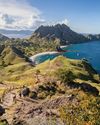
SULAWESI SENSATIONS
There are worlds within worlds and marvels untold waiting to be experienced on Indonesia's remote islands.
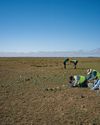
SEARCHING FOR AUSSIE DINOSAURS
Our understanding of where to find ancient life in Australia has been turned on its head by a new appreciation of the country's geology. Now the world is looking to our vast outback as the latest hotspot to locate fossils.
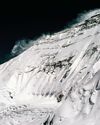
THE HARDEST NIGHT
The first Australian ascent of Mt Everest in 1984 is one of the great feats of mountaineering. Climbed by a small team semi-alpine style, with no bottled oxygen, via the Great (Norton) Couloir, it remains unrepeated 40 years later.
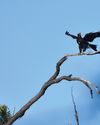
WEDGE-TAILED WONDER
The chance discovery of an eagle nest leads to an extended vigil observing normally hidden behaviours of one of nature's supreme winged marvels.
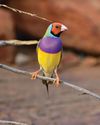
BURDENED BY BEAUTY
Northern Australia's Gouldian finch survives in huge numbers in cages around the world, but its wild population continues to struggle.
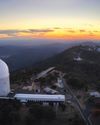
A TELESCOPE FOR A GOLDEN AGE
After a stellar 50 years as one of the country's major scientific assets, the AAT continues to play a major role in keeping Australian astronomy on the world stage.
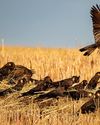
COCKY WHISPERING AT COOMALLO CREEK
This patch of remnant bush on the edge of the West Australian wheatbelt is a place loved by one of Australia's rarest bird species and the man who has studied the site for more than 50 years.

A PIONEERING PAIR
Louisa Atkinson and her mother, Charlotte, were among Australia's earliest authors, and pioneers in women's rights.

THE LONGEST WALK
Lucy Barnard is walking from Argentina to Alaska -the length of the Americas - on an extraordinary journey of endurance and adventure.
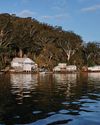
SECLUDED, BUT NOT ALONE
In an era of heightened social isolation, where many of us lead lonely lives, Dangar Island offers the chance to be part of a supportive, connected community.